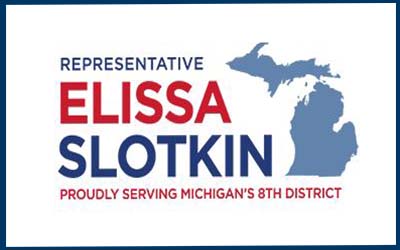
by orionontv | Feb 20, 2024 | Feature Writers, High School Sports
Written Saturday February 17th at 7:20 PM

Seaholm will go a different direction next season with their boys basketball program.
The Maples confirmed by Brandon Folsom of Hometown Life said that they have let coach Mike DeGeeter go. Folsom mentioned it on X formerly Twitter on Saturday.
It is unknown what led to the departure of DeGeeter. He was let go after the loss on Thursday to Bloomfield Hills.
Will Broner was named the interim coach for the rest of the season.
DeGeeter took over the Seaholm program in 2014. He went 83-126 in his 10 years coaching the program.
It will be very interesting to see what happens with the rest of the season and in the future for the Maples especially with the postseason starting next week.
Stay tuned to OAA Now for the latest on this developing story.
Here is the tweet confirming DeGeeter’s departure.
https://twitter.com/folsombrandonj/status/1758939549776945525

by orionontv | Feb 20, 2024 | Feature Writers, High School Sports
Written Saturday February 17th at 7:30 PM

- Troy (18-1): Colts have the best starting intro music in the league.
- West Bloomfield (15-5): Lakers looked a little out of sync against Clarkston.
- North Farmington (17-2): Raiders still haven’t been themselves lately.
- Adams (13-6): Peter Kardasis needs to be on the floor, if not the Highlanders are in trouble.
- Ferndale (11-8): Eagles have to get things figured out and soon.
- Groves (10-10): Paul Hubbard has been huge for the Falcons.
- Clarkston (10-10): Postseason goals are still in front of the Wolves.
- Troy Athens (12-7): Red Hawks need Griffin LaBay to be at his best or they are in trouble.
- Avondale (15-6): Tuesday decides it all.
- Harper Woods (7-11): Pioneers have been playing much better since the loss to Seaholm.
- Oxford (14-6): Tuesday decides it all.
- Lake Orion (13-7): Quay Fly has been playing well lately.
- Farmington (11-9): Greg Grays has led the Falcons resurgence.
- Berkley (13-6): Bears are gearing up for the postseason.
- Pontiac (12-8): Phoenix have been up and down lately.
- Rochester (6-15): Falcons have won three straight.
- Bloomfield Hills (5-14): Phil Muhammad and D’Ron Mason are the next stars in the making.
- Seaholm (6-15): Maples going through a lot right now.
- Stoney Creek (5-14): Gideon Beers and Tyree Smith can straight out play.
- Oak Park (4-14): Knights need to get healthy and quick.
- Royal Oak (9-11): Ravens are 1-6 since the Stoney Creek loss.
- Ferndale University (2-17): Eagles really struggling right now.
- Southfield Arts and Tech (2-18): Warriors really struggling right now.

by orionontv | Feb 20, 2024 | Feature Writers, High School Sports
Written Sunday February 18th at 10:10 AM
West Bloomfield (22): The Lakers are locked in as the top seed in their district which means they would see either North Farmington or Farmington in the district semifinals and either Birmingham Marian or Farmington Hills Mercy in the district finals. West Bloomfield should be battle tested as we get deeper into the season. Coach Darryl McAllister has this team believing right now for another deep postseason run.
Rochester (27): This is the best case for the Falcons. They are locked in as the A team in the district which means they would play Romeo in the district semifinals and have their possible rematch with Stoney Creek in the district finals. Coach Bill Thurston’s team might be the most dangerous team in this district.
Stoney Creek (27): The Cougars are locked in as the top seed in their district which means they would get the bye and plays Adams or Utica Eisenhower in the district semifinals. Stoney Creek has wins over Utica Eisenhower, Adams, Rochester, and Romeo as well. There has to be a sense of concern for Coach Columbus Williams’s team because they have had battles with these respective teams and had to survive them. If they get Rochester in the district finals that would be very interesting. (Stoney Creek won both games by a combined three points). The Cougars have home court but they have shown at times they can be vulnerable.
Lake Orion (29): The Dragons are locked into the second seed in their district. They will see Waterford Kettering in the district semifinals. Lake Orion could see arch rival Clarkston in the district finals which both teams split their regular season series. It should be a very interesting matchup to see for Coach Bob Brydges’s team.
Clarkston (29): The Wolves are locked into the top seed in their district. They will see Waterford Mott in the district semifinals. Clarkston could see arch rival Lake Orion in the district finals which both teams split their regular season series. It should be a very interesting matchup to see for Coach Aaron Goodnough’s team.
Oxford (32): The Wildcats are locked into the second seed in their district which means they could see Grand Blanc in the district finals. Coach Rachel Bryer’s team will see Davison in the district semifinals with Grand Blanc waiting the winner of Holly and Lapeer. The Wildcats won 42-34 over the Cardinals on December Seventh. Oxford will be a very interesting team to watch in their district.
Royal Oak (23): The Ravens will likely be seeded, the question is where will they be seeded??? Coach Brian Sopota’s team has the top seed in their district for now but they could fall into the two seed and their district is at Warren Cousino which means they could see the Patriots in the district finals. They will see Sterling Heights, or Warren Mott if they are the top seed and Groves if they are the second seed. Either way the Ravens are in a good spot.
Bloomfield Hills (28): The Blackhawks are in a battle for one of the two seeds in the district. They are behind Seaholm and Troy but they are within striking distance. If Coach Kristen Massey’s team doesn’t get one of the two seeds then they would be the B team in the district which means they could play Troy Athens on that Monday. It’s still very much wide open as of right now and if they can get one of the two seeds then they won’t have to play on that Monday.
Harper Woods (60): The Pioneers is the top seed in their district for now but Eastpointe and Harper Woods Chandler Park are within striking distance if Coach LaTonya Tate’s team is not careful. They would meet either Eastpointe or Detroit East English Village Prep in the district semifinals pending what happens with the two seed. If the Pioneers are not seeded they would be the B team in the district which doesn’t seem likely as of right now. Harper Woods if they can keep winning will be seeded in a district where everyone plays on Wednesday.
Seaholm (28): The Maples have the top seed for now in their district but just barely. Troy is right behind them and Bloomfield Hills is not too far behind. If Seaholm doesn’t get either seed they would be the B team in the district which would mean Coach Chris Manchester’s team would have to play Troy Athens on that Monday and if they win they would play the top seed on Wednesday in the district semifinals. If the Maples keep winning they could keep that top seed in their grasp, they don’t want to be the team playing on that Monday.
Groves (23): The Falcons are locked as the A team in their district. Groves has been up and down this season for Coach Alison Hidey. They could see Warren Cousino in the district semifinals which is a tough matchup since the district is at Warren Cousino. This presents an opportunity for Hidey as they have played a much tougher schedule but it is a test for sure for the Falcons.
North Farmington (22): The Raiders are locked as the C team in their district which means they could play Farmington in the first round in which they won their regular season meeting 59-12 on December eighteenth. If they win over their arch rivals then they would see West Bloomfield in the district semifinals. Coach Michael Allan has done a great job in his first season with North Farmington but in the district, his team got sentenced by the district formula.
Southfield Arts and Tech (21): The Warriors have an outside shot of being seeded but they need some help when it comes to that situation. Coach Shaquita Coltrane’s team is the D team in their district for now. It would mean that they would play Oak Park in the first round and possibly Detroit Mumford in the district semifinals if they win. Southfield Arts and Tech could have a strong say with their high octane offense and a much better path toward the district finals.
Troy (28): The Colts are in a battle for one of the two seeds. They are the second seed for now in their district where they are behind Seaholm and just ahead of Bloomfield Hills. If Coach Laura Guzman’s team doesn’t get seeded they would be deemed the B team in the district meaning they would have to play on that Monday against Troy Athens. It’s interesting to see where the Colts are at.
Berkley (21): The Bears got a raw end of the deal when it comes to the MPR but they are within striking distance of Detroit Mumford. They are the A team if they are not seeded meaning they would have to play Redford Thurston on that Monday but see Detroit Renaissance in the district semifinals. Coach Clay Shaver had done a very good job with his team this season. Berkley is a sleeper in this district.
Adams (27): The Highlanders are locked in as the B team in the district meaning they would have to play Utica Eisenhower in the first round then if they get by the Eagles which would be a tall task then they would play Stoney Creek or Romeo in the district semifinals. Adams played Stoney Creek very tough in the Crosstown Showdown. Coach Joe Malburg’s team is playing with nothing to lose and everything to gain.
Troy Athens (28): The Red Hawks have an outside shot of being seeded in their district but they need some help. Coach Stacie Klumpp’s team would be the C team if they do not get seeded meaning they would be playing on that Monday against Seaholm, Bloomfield Hills, or Troy. Whoever wins would play the top seed in the district semifinals. Troy Athens is a dangerous team for anyone to play against in their district.
Farmington (22): The Falcons are locked in as the B team in their district which means they will play North Farmington in the first round. Farmington fell 59-12 to North Farmington on December Eighteenth. If they win that game then they see West Bloomfield in the district semifinals. Coach Natalie Nowak’s team basically got sentenced by the district formula.
Avondale (28): The Yellow Jackets are locked as the A team in their district meaning they would have to play the two seed in the district semifinals and it could be Seaholm, Troy, or Bloomfield Hills. It’s a tough matchup either way for Coach Roy Christmon and Avondale.
Ferndale (58): The Eagles are in a very interesting spot when it comes to the postseason. They are the two seed for now but it’s close with Detroit Lincoln King Academy. If Ferndale gets jumped they would be the C team in the district which could be a very bad matchup with Detroit Henry Ford in the first round and Detroit Lincoln King Academy in the district semifinals with playing Birmingham Detroit Country Day in the district finals. A lot could happen between now and next week when it comes to Coach Keith Paris’s team.
Ferndale University (58): The Eagles are locked in as the D team in the district meaning they would have to play Detroit Henry Ford in the first round and if they get by that then they would play Birmingham Detroit Country Day in the district semifinals. It’s going to be very tough for Coach Brianna Rowe’s team either way.
Oak Park (21): The Knights are locked in as the B team in their district which means they would play Southfield Arts and Tech in the first round on that Monday. If they upset the Warriors then they would play Detroit Mumford in the district semifinals. It’s going to be very tough for Coach Tyler Washington and Oak Park with how they have struggled this season.
Pontiac: The Phoenix have dropped out of the postseason which was very surprising. If they were in the district, they would have had a tough matchup with Lake Orion in the district semifinals but it is what is.
Here is the Girls Basketball MPR formula.
https://www.mhsaa.com/sites/default/files/MPR/2023-24/2023-24%20FINAL%20GBB.pdf




 2023 Art Competition winner Emma Li of Okemos High School visits Washington to see her painting hanging in the U.S. Capitol with Rep. Slotkin.
2023 Art Competition winner Emma Li of Okemos High School visits Washington to see her painting hanging in the U.S. Capitol with Rep. Slotkin. 






